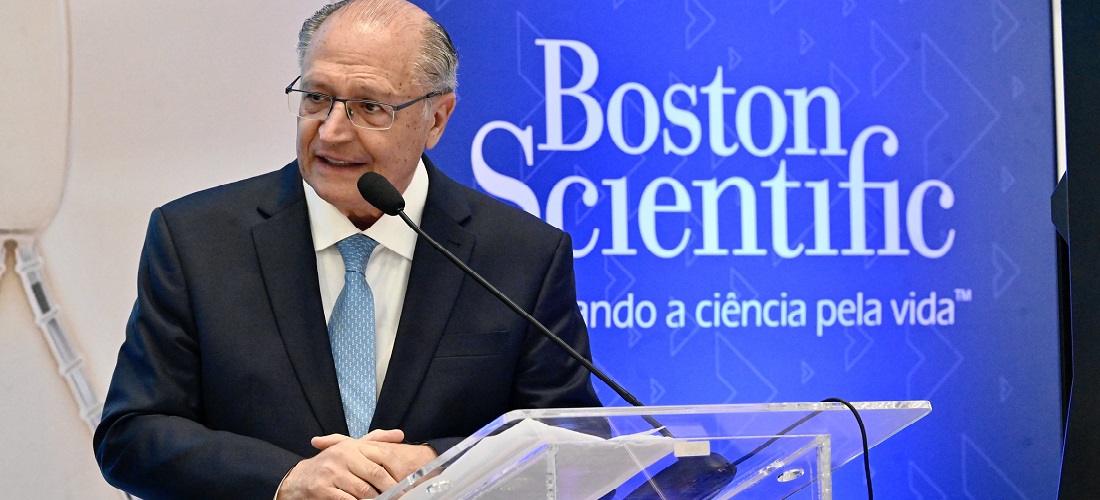
Brazil VP Alckmin Joins Boston Scientific Factory Expansion in Minas Gerais, Targeting Export Growth
May, 08, 2024 Posted by Gabriel MalheirosWeek 202418
On Tuesday (7), Geraldo Alckmin, the Vice President and Minister of Development, Industry, Trade, and Services (MDIC), participated in the ceremony marking the expansion of the Boston Scientific factory in Contagem, Minas Gerais. This expansion is poised to triple the production capacity of cardiac valves made from porcine tissue, from 20,000 to 60,000 units annually, with a keen focus on bolstering exports.
Alckmin hailed the investment as “paramount” for the nation, emphasizing its significance in the healthcare sector, particularly in cardiology. “Cardiovascular diseases rank as the leading cause of morbidity and mortality worldwide and in Brazil,” he remarked. “Thus, this initiative not only saves lives but also enhances the quality of life for our population, aligning with President Lula’s and our vision for the New Industry Brazil.”
With an investment totaling R$120 million, the American company anticipates meeting the escalating demand in regions where it already has a strong presence abroad. Projections indicate that exports could reach R$780 million within three years.
“The New Industry Brazil will be more competitive, innovative, and export-oriented, as evidenced by Boston Scientific’s endeavors,” Alckmin noted. “The company exports to Latin America, Europe, and Asia, and is poised to enter the American market, underscoring its pivotal role in our economic landscape.”
The factory expansion will also lead to a surge in job opportunities, increasing from 950 to 1,700 positions.
Biological Valve Crafted from Inert Porcine Tissue
According to company sources, the transcatheter valve, a technology used in Brazil since 2016, is manufactured from porcine tissue. Following a chemical treatment rendering it inert, thus eliminating the risk of rejection in humans, the porcine pericardium is sutured onto a nitinol metal framework to form the implantable product. This transcatheter aortic valve implantation (TAVI) technique has been in practice for 22 years, with the first transplant conducted two decades ago.
Furthermore, the company underscores that this minimally invasive cardiac procedure supplants certain types of open-heart surgeries, offering enhanced safety, swifter recovery, and significantly reduced mortality risks.
The valve is encapsulated within a catheter, which is then inserted through a small incision in the transfemoral artery, reaching the heart. Besides mitigating risks, patients experience expedited recovery. Medical monitoring is necessary to assess the prosthesis’ functionality. Currently, approximately 280,000 valve implant surgeries are performed annually worldwide, as reported by Boston Scientific.
-
Ports and Terminals
Aug, 06, 2024
0
New offshore fuel supply operation comes to Sepetiba Port
-
Meat
May, 30, 2022
0
Brazilian poultry genetics exports up 13% in 2022
-
Grains
May, 29, 2024
0
Reuters: Argentina on track to start corn exports to China in July – grains chamber head
-
Shipping
Jun, 15, 2020
0
Maersk to change their mooring ropes over the course of five years



